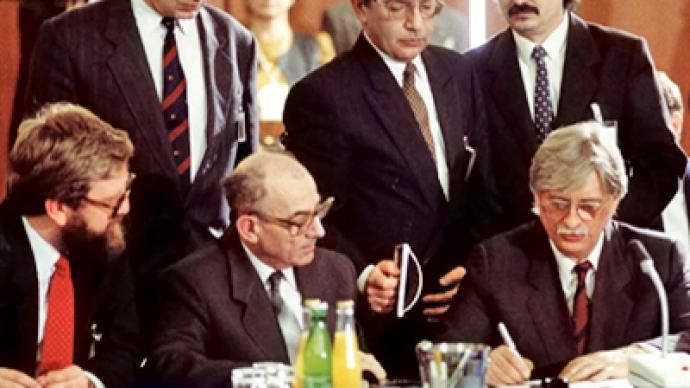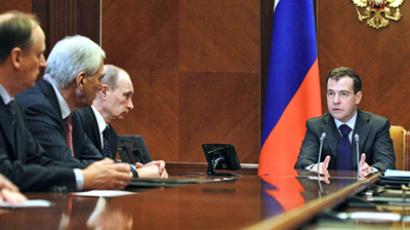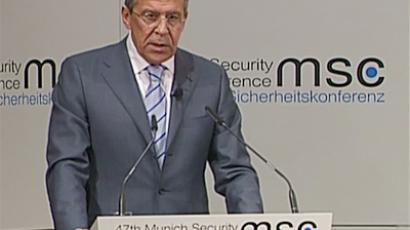Twenty years since anti-NATO disarmed

On February 25, 1991, the Warsaw Pact organization decided to dismantle its military structures, effectively making the military alliance made in response to rise of NATO non-functional. Four months later the treaty was declared void.
The fall of the Warsaw Pact was as rapid and unexpected as the fall of Soviet Union itself. The strongest conventional military force on the continent collapsed without a single shot in a matter of a few years, as Eastern European countries swung their loyalties and abandoned communism. However the treaty had achieved its goal – preventing another major war in the region from happening.The Warsaw Pact was the military alliance of European socialist countries established after the end of World War II, with the Soviet Union as its leader. Its creation was in response to the inclusion of West Germany in NATO. Moscow’s former Western allies chose to rearm the former common enemy as part of a US-led global campaign against communism.The USSR, which suffered most in the war with the Nazis, was determined not to allow the invasion of its territory again. After its application for NATO membership was turned down, making Eastern Europe a buffer zone was a natural strategic move. In return for their manpower and bases, the satellite countries received military supplies, training and economic aid from Moscow – basically the same deal Washington offered its North Atlantic Alliance allies.imilarities between NATO and its Soviet counterpart start with their respective founding treaties. Both stated adherence to the principles of UN Charter, mutual protection, independent policies of members and peace as the ultimate goal. Both said a pan-European security structure may replace NATO and Warsaw Pact respectively.The initial treaty signed in Warsaw on May 14, 1955, involved eight member states. It turned into seven after Albania de facto split off in the early 1960s after supporting communist China in its ideological conflict with the Soviet Union and officially withdrew from the organization later in 1965. East Germany ceased to be part of it after reunifying with its western counterpart in 1990.Over the decades of its existence, the Warsaw Pact organization held dozens of war games and just one actual military operation – the “self-invasion” of member state Czechoslovakia in 1968. The invasion was to stop rapid liberalization in the country, particularly the introduction of some elements of a market economy, which was perceived as a threat to the socialist bloc.How successful the whole project was is subject to debate. The rapid dismantling of the late 1980s clearly indicates that Moscow put too much pressure on its allies, provoking dissent in both ordinary citizens and the elites.The reason may have been Kremlin’s obsession with control, too big a disproportion of raw political influence, or lack of trustworthiness from the Eastern European countries. On the other hand, NATO suffered from similar problems, apparent from France’s partial split off of the alliance in 1959.Despite its drawbacks, the Warsaw Pact did its job of protecting post-war borders in Europe from a violent change – which happened several times with NATO’s industrious participation after the Eastern Bloc ceased to exist.The fact that NATO, which was made in the first place to fight the Soviet Union, has not been disbanded when Warsaw Pact was no more, is one of the biggest concerns for contemporary Moscow. Every former member has joined NATO by now, and Russia, presumably not seen as an enemy anymore, cannot help calling it encroachment. Georgia, the country Russia has the worst relations with at the moment, does not hide that it wants NATO membership to have the West’s power at its back against Russia.This concern may not be voiced too loudly after the “reset” between Moscow and Washington. But it may change overnight, if the new US administration takes the aggressive stance of the Bush era.














